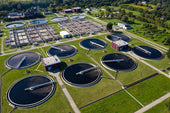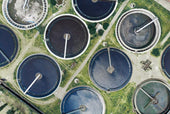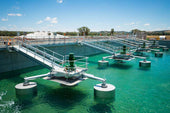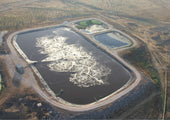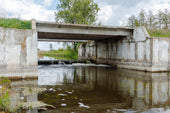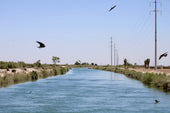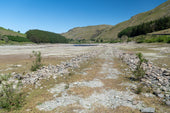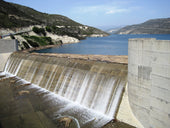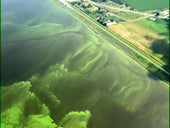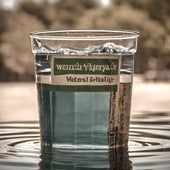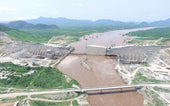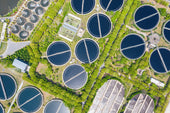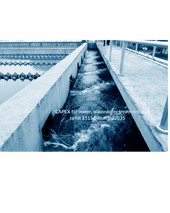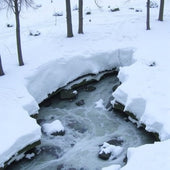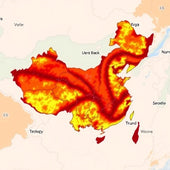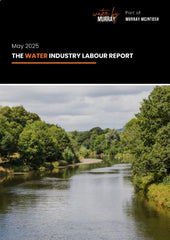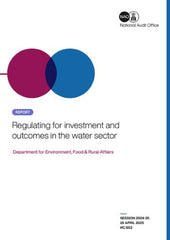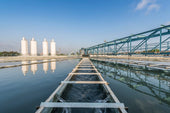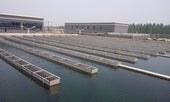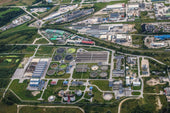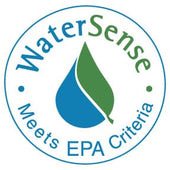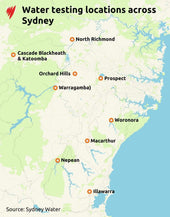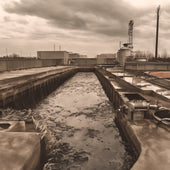
Portland pauses construction on $2B water treatment plant after land-use appeal loss
Portland officials said Friday that the city has temporarily paused construction on its $2 billion water filtration plant east of Gresham, marking another setback to the costly and controversial project as it faces a looming regulatory deadline.
The decision comes several weeks after a state agency sided with opponents of the Bull Run water treatment facility and overturned a portion of a conditional land-use permit required for the project.
The Land Use Board of Appeals had ruled Jan. 22 that Multnomah County officials failed to determine whether construction on the filtration plant, located on city-owned property south of Oxbow Regional Park, would adversely impact the rural area’s natural resources.
The agency, which upheld other permit provisions, ordered the conditional land-use application back to Multnomah County for further review. Parties had until Wednesday to challenge the ruling, but none did so.
City officials now say they will pump the brakes on construction during the county review process, which could last up to 120 days.
“There are many unknowns at this time — including the duration of the pause — but we’ll be working with the county and [the Land Use Board of Appeals] to better understand the timeline and project impacts in coming days and weeks," Water Bureau spokesperson Felicia Heaton told The Oregonian/OregonLive.
Portland officials say the city needs to have the new water treatment facility operational by 2027 to comply with federal drinking water regulations to filter out the parasite cryptosporidium and other contaminants.
Failure to do so could result in daily fines from the federal government or a requirement for Portland to begin issuing boil water notices until the new filtration plant is up and running, according to the city.
The site of the Bull Run water filtration plant — a large parcel of forest land purchased by the city in 1975 — is not zoned for the project, which is why it currently needs a conditional land-use permit.
It was one of at least six locations the city considered when it began planning the project nearly a decade ago.
A group of rural residents, farmers and businesses near the 95-acre construction site have fought the city’s marquee public works project for years.
“This a huge win for our community,” said Lauren Courter, a leading critic of the project. “Disrupting construction will cost the city more and further threaten their deadline.
“However, the cost to the city should not be blamed on the community opposition,” Courter continued. “The city chose this site knowing its project could not meet the land use restrictions. How can a $2 billion mega industrial project possibly be built with ‘no adverse impacts on natural resources’?”
Because of fierce opposition and a host of other factors, the filtration plant has faced numerous delays and a ballooning price tag that’s now $2.1 billion — a fourfold increase from the $500 million plan first approved in 2017 by city elected leaders.
Portland officials finally broke ground on the project last year and now have just over two years to complete it under the September 2027 deadline.
“Construction of the Filtration Facility is the right thing to do to protect public health,” Mayor Keith Wilson said in a statement Friday. “We will continue to participate faithfully in the land use process and look forward to addressing the issues on remand so we can get back to building this critical project as efficiently and cost effectively as possible.”
Meanwhile, Portland officials are seeking an assist from state lawmakers to stamp out continued opposition with a proposal before the Legislature that would allow the city’s water filtration plant to circumvent Oregon’s typical land-use appeals process.
The bill would allow a “public health infrastructure facility” to be built on any type of land if the U.S Environmental Protection Agency, Oregon Health Authority or Oregon Department of Environmental Quality has established a deadline for its development
Portland, which prides itself on its pure Bull Run water from a huge virgin watershed of the same name near Mount Hood, only treats its water to add chlorine and ammonia as disinfectants as well as sodium carbonate and carbon dioxide to reduce its corrosiveness.
In 2017, the EPA and the Oregon Health Authority said that had to change because cryptosporidium was showing up too often in the city’s water samples. Drinking water tainted with the some strains of the parasite can cause diarrhea, vomiting and dehydration.
Critics have claimed federal rules on cryptosporidium are out of date and misguided, noting that animal-borne strains of the parasite — which are sometimes detected in the Bull Run watershed — are not harmful to humans.
-- Shane Dixon Kavanaugh covers Portland city government and politics, with a focus on accountability and watchdog reporting.
Reach him at 503-294-7632
Email at skavanaugh@oregonian.com
Follow on X @shanedkavanaugh or on BlueSky @shanedkavanaugh
Our journalism needs your support. Subscribe today to OregonLive.com.










